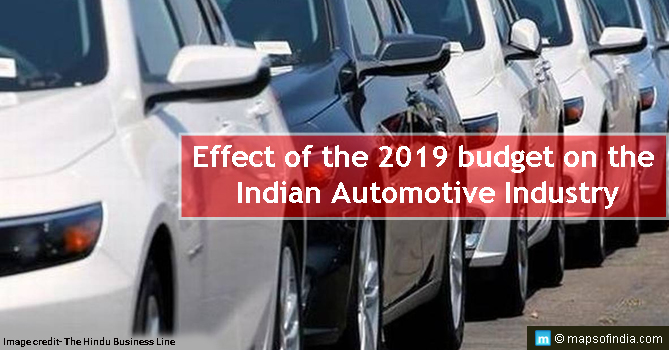

The interim Budget for fiscal year 2019-20 has brought significant offerings for farmers, workers and the middle class people, but the corporates seem to be somewhat disappointed with the way the numbers have been crunched.
Preparing for a future of electric mobility
According to Finance Minister Nirmala Sitharaman, the Indian automobile sector is being prepared to ride in the forefront of the world energy revolution by welcoming the electric segment with wide open arms. The aim is to somehow shift the entire country’s focus of mobility towards electric power and substitute oil import with in-house electricity production through the numerous possibilities and rapidly growing methods of electric power production. Already a leading automobile manufacturer in the world, India is being prepped to be the next hub of electric mobility.
Slowdown needs stimulus
The industry however, has been experiencing quite a difficult time – despite the recent flood of new designs and segments set to woo the Indian automotive buyers, sales have been facing a challenging slowdown and would have welcomed some sort of support or stimulus in the form of relief from taxations and duties on imports and sales of vehicles, machinery and spare components, in line with such events that the market has experienced before.
As is evident from most statements given by officials from various automotive or industry related bodies, the automobile sector has welcomed the government’s support for the electric vehicle industry as demonstrated through the announcements made in the union budget 2019. However, leading players have expressed dismay at the absence of the same for the existing regime of taxation and duties. Leading auto manufacturers feel that the offered sops will not be of any significant help in enabling the industry to cope and recover from the sluggish movement and general fatigue in the markets today.
Industry’s who’s who are of course grateful for the government’s initiatives and steps to promote electric vehicles like the reduction of GST to 5% and other exemptions like those in customs duties on electric vehicle components, tax deduction on the interest components paid towards loans for purchase of electric vehicles and others. The said reforms were duly recommended by the Society of Indian Automotive Manufacturers (SIAM), which is thankful for their acceptance and acknowledges that these reforms will help in making EVs more affordable and hence more attractive to the potential buyers.
Disappointment with sops
There are, however, some concerns of the industry like the voluntary scrappage policy being “scrapped” and the absence of any mention of the extension of the 200% weighted deduction for research and development expenses.
Moreover, any deductions or incentive benefits to boost the automotive sector by cutting down financial payables or encouraging investment into the existing industry cycles were simply not included.
Other officials have appreciated the expenditure plans on road upgradations under the PM Gram Sadak Yojna since these would help improve commercial vehicle sales and better connectivity would provide better means and results in boosting overall auto and component sales in the longer term. In complete opposition to these benefits, however, the addition of cess and the consequential price hike of petrol and diesel are already expected to impact auto sales and transport costs in both two wheeler and four wheeler segments as increased fuel rates would lead to increase in end product sales costs and affect buyers’ abilities adversely.
The corporate tax turnover limit of 25% has been raised from 250 crore to 400 crore and has some voices chirping with excitement towards engaging in business and member benefits. Nevertheless, partnership and proprietary concern related demands that would have benefitted some major players in the market were absent from the discussed terms of the budget.
High GST continues to be a burden
The market leaders also expressed that the sluggish nature of the market in the very least demanded that the GST on automotive components and spares should have been lowered even if only temporarily till the market recovered, to 18% as opposed to the extremely burdening rate of 28%.
The important concern is also if the government plans on introducing any taxation benefits in the next budget for the automobile industry. What came as a slight relief though to some companies was the lowering of the custom duty on the import of completely knocked down (CKD) and semi knocked down (SKD) electric vehicle components by 10 to 15% which is being seen as another initiative to encourage the in-house assembling of electric vehicles, thereby further bringing down their sales costs.
What is also evident is that the government is sincerely inclined towards bringing all energy production in-house and pushing the Indian automotive sector to becoming as self sufficient and growth centric in clean energy as possible. The very obvious bias towards bringing the electric revolution to the Indian market through the automotive sector shows that the government has decided to take a far sighted approach towards innovative industry growth, environmental preservation, and long term sustainability.
More Auto Related Articles:
Modi 2.0 Government’s New Scheme for E-Vehicles




